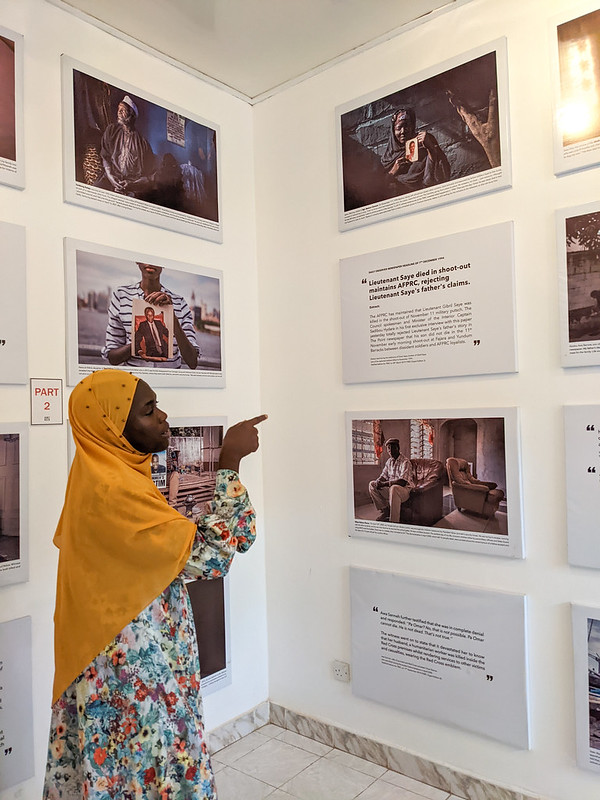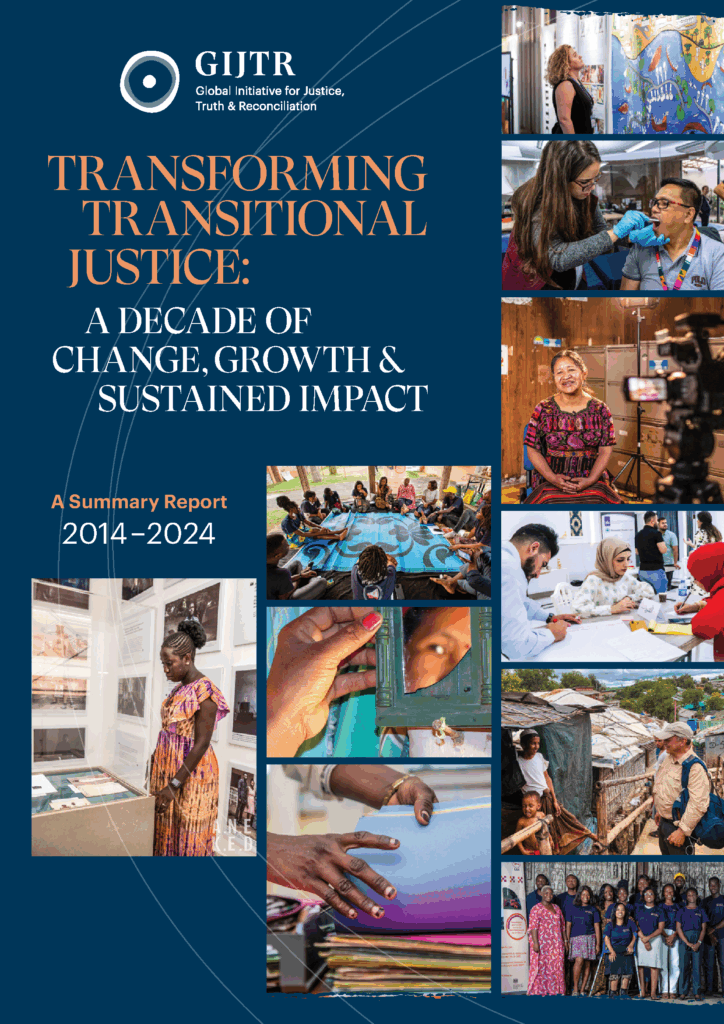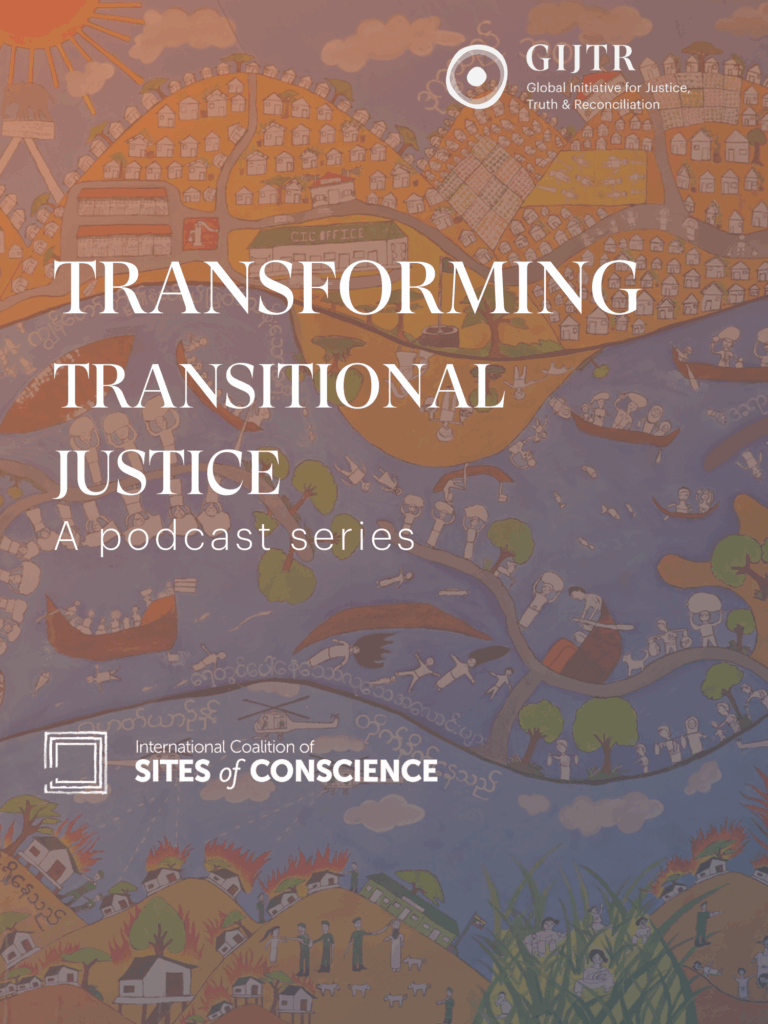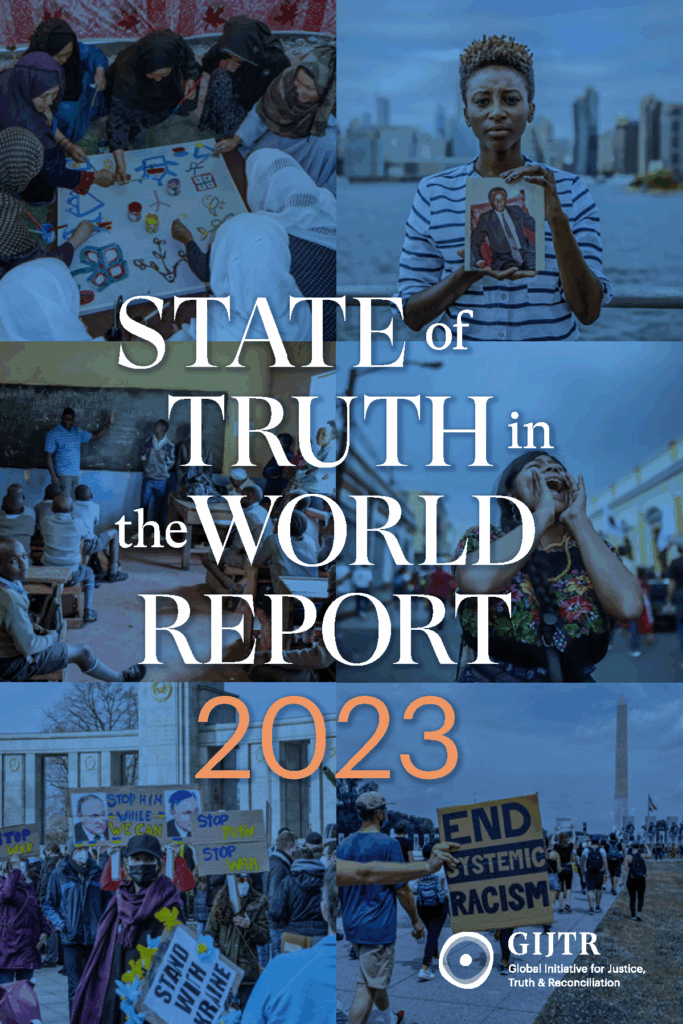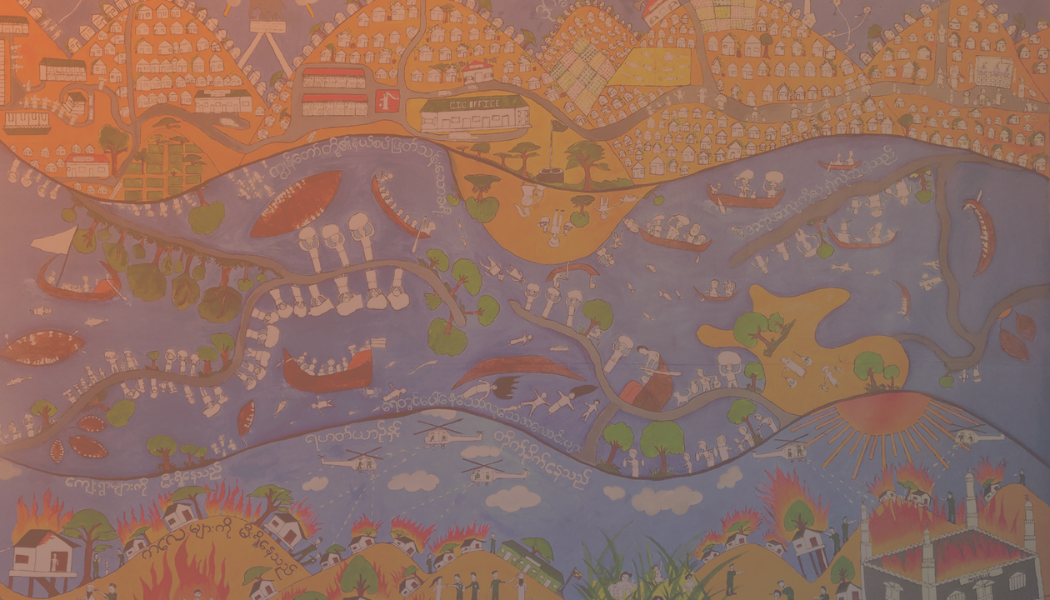
Truth, Justice & Reconciliation
The Global Initiative for Justice, Truth and Reconciliation (GIJTR) was founded in 2014 by the International Coalition of Sites of Conscience. As a consortium, GIJTR has worked to promote new approaches to addressing human rights violations by pioneering holistic, integrative and multidisciplinary approaches to issues of truth, justice and reconciliation.
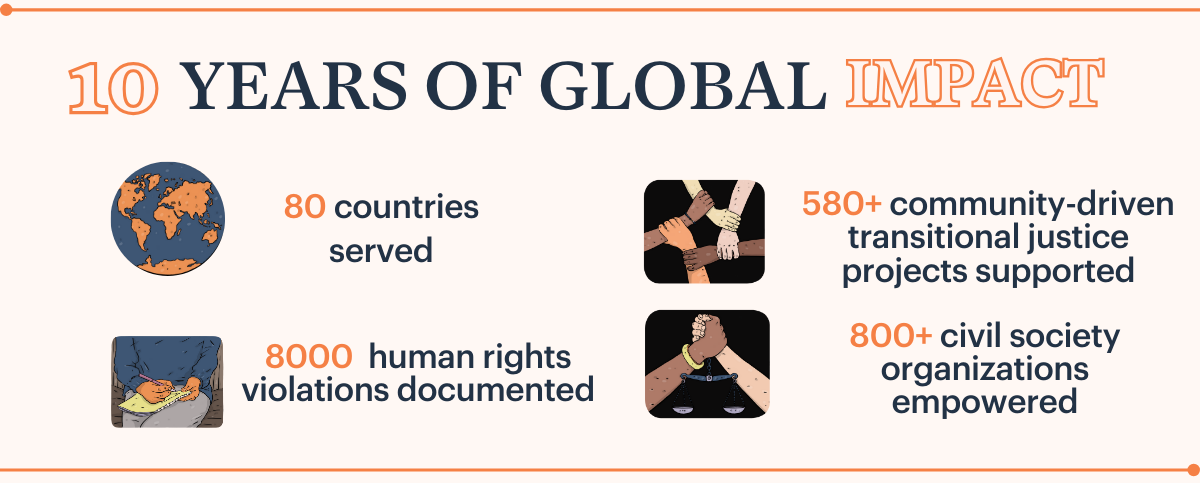
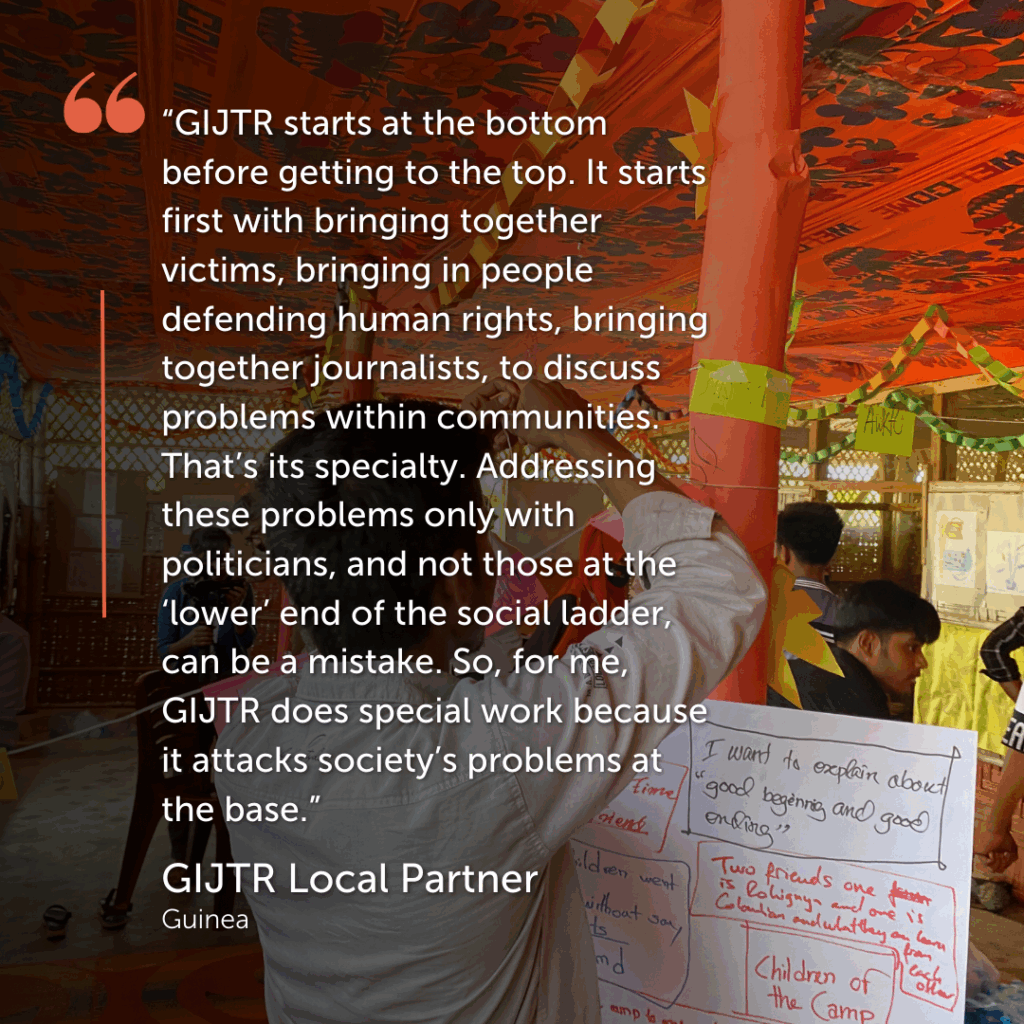
Under the leadership of the International Coalition of Sites of Conscience, the GIJTR consortium has has transformed the field of transitional justice, demonstrating the impact of what can be achieved when organizations work in a coordinated manner and go beyond thematic silos and geographical areas of focus. GIJTR’s multidisciplinary approach has also meant greater opportunities for co-creation and ownership amongst all organizations involved (Local and Consortium partners) and has encouraged the growth of a learning community engaged in reflective practice. Since inception, GIJTR has continued to challenge the modus operandi of the transitional justice field, both in questioning accepted practices and knowledge systems, while also demonstrating alternative models for community-driven processes.
By grounding the solutions to peace and justice within local communities and exploring cutting-edge issues, GIJTR seeks to address the complex questions of root causes and creates local ownership and sustainability of truth, justice and reconciliation processes.
Learn More About Our Impact
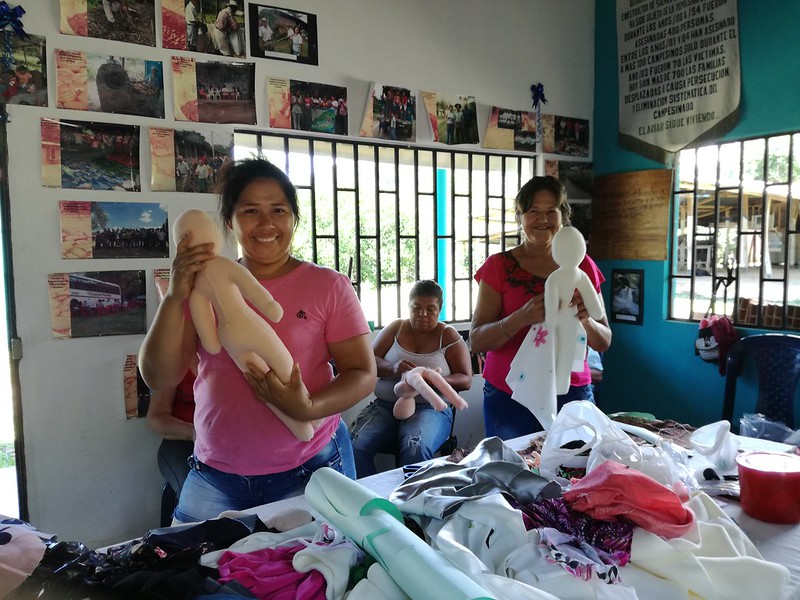
Cultivating Grassroots Platforms for Truth-Telling
GIJTR works to create and preserve platforms for truth-telling, with a recognition of the inherent limitations of existing truth commission processes and the bureaucratic struggles often experienced in instituting new truth-seeking bodies. GIJTR draws on various modes or truth-telling, remaining cognizant to the needs of communities, the types of violations suffered, and social and cultural stigmas faced by victims.
Driven by innovative and non-prescriptive approaches, GIJTR works to incorporate truth-telling practices that are local to a community as well as introduce complementary practices that can offer alternative avenues, all while prioritizing the need to capture the complexities of multiple narratives in societies marred by injustice and impunity across generations. These modes of truth-telling range from body maps that illustrate the life stories of survivors and victims in Sri Lanka to Dolls of Memory that capture the stories of communities in Colombia.
Democratizing Documentation and Forensics
Communities have largely been limited to solely providing testimonies and DNA samples to multiple state or international actors, who in turn provide limited information on how victims and families of victims’ evidence will be used and if it will have any direct outcomes for justice. GIJTR has sought to challenge this prevailing practice of extractive documentation and forensics collection. In turn, this has shifted how the transitional justice field captures and preserves violations, both for the public record and for future accountability purposes even during times of active conflict.
GIJTR’s documentation work centers on training local documenters, who are often survivors themselves, to collect other survivors’ testimonies and in 2018 the Forensics Academy was launched to ensure that forensic investigations are more inclusive of family members of the missing, and more accessible to civil society actors.
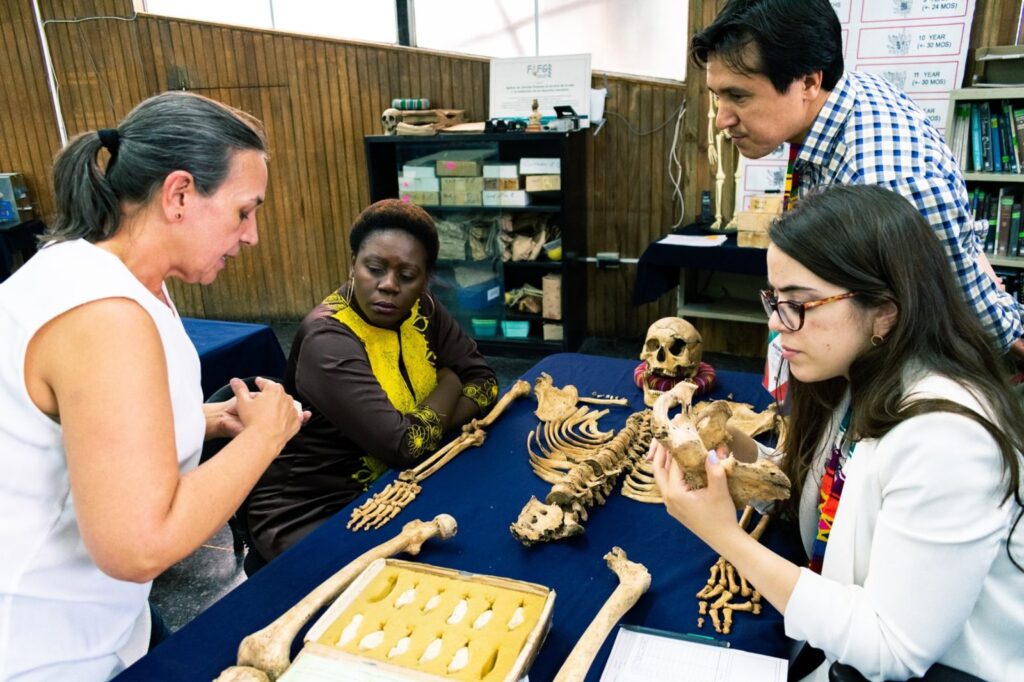
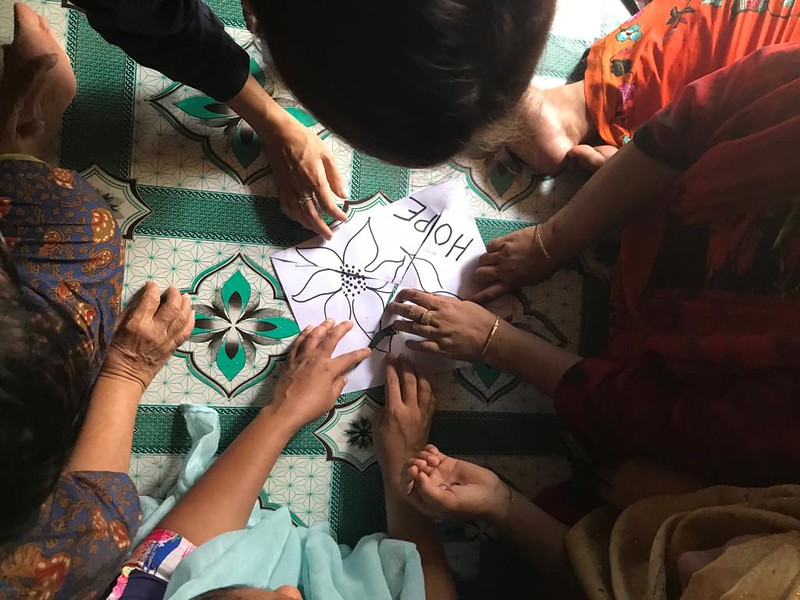
Envisioning Redress, Justice and Peace
GIJTR understands the equal significance of processes that allow for victims and survivors to envision and advocate for a world that prioritizes redress, justice and peace. GIJTR is guided by the core tenet that victims and survivors inherently know their needs and that justice must be tied to material and symbolic acts of accountability, memorialization, non-recurrence and reparations.
This forward-looking shift reinforces the agency and self-determination of victim groups and emphasizes that need for building a world that is rooted in respect for human rights and the protection of vulnerable groups and where the experience of victimhood is not permanent. GIJTR’s work with post-conflict communities goes beyond knowledge transfer and capacity building. Through intentionally designed financial, technical and programmatic support, GIJTR provides local civil society partners opportunities to develop solution-based projects that are derived from and sustained by community members themselves.
Making Marginalized Voices Visible
GIJTR works with local partners to create safe and trauma-sensitive spaces where victims, many of whom have never been encouraged to share their experiences or instead actively silenced and threatened, are supported to express themselves through art and other creative mediums. In keeping with GIJTR’s approach of memorialization as the fifth pillar of transitional justice, local civil society is supported in their efforts to counter dominant singular narratives and correct the record, while making marginalized voices seen and heard.
GIJTR understands that social transformation and sustainable peace can only be achieved if the very mechanisms meant to facilitate accountability and restitution are committed to holding space for all voices, in both experiences of harms and demands for redress. Through GIJTR, local partners have been particularly impactful in amplifying the voices of historically marginalized groups, including women and LGBTQ+ communities, with the aims to meet both the different needs of victims while also tackling broader gender-based inequities and violations.
